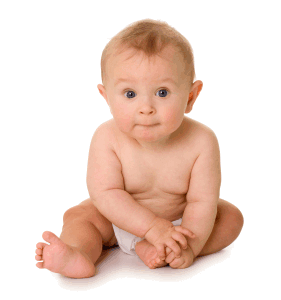04 May Hearing Through the Ages – Babies & Children
 Communication starts sooner than you may think. Parents start to anticipate their babies first word but really communication begins long before the first word is spoken. Babies begin to take in the world around them and begin making sounds very early on. The first 3 years are critical for speech and language development. For more info on Speech, Language and Hearing milestones
Communication starts sooner than you may think. Parents start to anticipate their babies first word but really communication begins long before the first word is spoken. Babies begin to take in the world around them and begin making sounds very early on. The first 3 years are critical for speech and language development. For more info on Speech, Language and Hearing milestones
Early identification of hearing loss is important. Difficulties early on can affect speech and language development later in life. The earlier hearing loss is identified the less speech and language are affected. Because of this critical time period for speech and language development newborn hearing screening programs have been implemented in the hosptials and almost all babies are tested prior to going home. For more info on Early Hearing Detection and Intervention.
As a child gets older learning occurs both in and out of the classroom. The classroom can be a challenging listening environment with all the noise and activity from the children. Understanding the teachers voice is crucial for an effective learning environment. For more information on communication disorders in children
Warning Signs and Risk Indicators for Hearing Loss
- Stops early babbling
- Frequently pulls at his/her ears
- Frequently gets colds and ear infections
- Does not understand people unless he/she is facing them
- Speaks loudly or turns up the volume of the television or radio
- Does not say single words by 12 months
- Does not respond when called
- Needs things to be repeated
- Family history of hearing loss
- Pre-maturity (less than 37 weeks)
- Low birth weight
- Lack of oxygen at birth
Hearing loss can be genetic. In infants born with hearing loss 50 to 60% of hearing loss is genetic. 70% of genetic hearing loss is non-syndromic meaning that hearing loss occurs in isolation without any other symptoms. The inner ear is complex and there are many different genes (more than 100) associated with hearing loss. One common gene that causes hearing loss is the GJB2 gene that plays a crucial role in the function of the inner ear and hearing.



